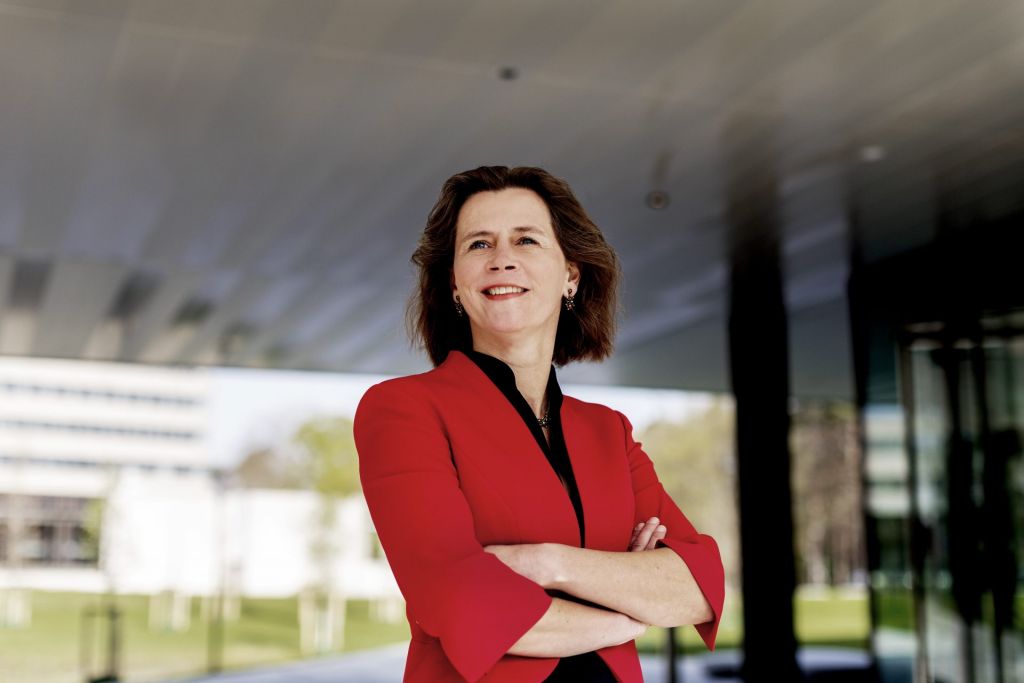Why relationships are so important for someone recovering from trauma
-
 Foto via unsplash
Foto via unsplash
In the Netherlands, there is still a taboo surrounding women who become parents after being raped, according to professor by special appointment Elisa van Ee; she wrote a popular science book about how their environment supports people who have had a traumatic experience. ‘Partners, friends, and family can help promote recovery.’
The community is able to provide tremendous support for people who have faced trauma. This was concluded by Elisa van Ee, after she conducted research in the Central African Republic. The professor by special appointment interviewed eight women for the International Criminal Court. All women interviewed were victims of sexual violence, committed by rebels after the 2001 coup. The purpose of these interviews was to see if women could testify in a criminal case without it causing any further harm upon them.
Van Ee was struck by the fact that the women, despite their symptoms and lack of psychological help, received so much support from their friends, family, and neighbours. She explains over a cappuccino at Grand Café de Iris that ‘that made a big impression on me, because in the Netherlands I often treat asylum seekers and refugees with trauma. The fact that they are no longer in their own community has a great impact on them. Besides, this sense of community has been greatly diminished in our society. But if you are struggling with trauma, a community that cares about you is just what you need.’
This is exactly why Van Ee wrote Mag ik bij jou?, a popular science book about the support a community might provide to those who experienced a traumatic event. Van Ee, who started her career as a full-time trauma-psychologist, is now a professor by special appointment of trauma counselling at Radboud University. The examples used in the book come from her own practice, though they have been adapted to be unrecognisable.
Attachment
There are two elements which largely decide whether someone might develop traumatic symptoms after a major event, Van Ee says. The first element is dissociation; if a person were to become alienated from themselves or their environment during an emotionally charged event, that reinforces the trauma. The second element is relational support; the reaction of the environment, and how this can increase or decrease any traumatic symptoms. ‘You see quite often that social support decreases for people who experience trauma. There is something very sad in that,’ according to Van Ee.
What is a trauma?
A trauma is a threatening situation that someone goes through. After this experience you develop symptoms linked to this experience. ‘These symptoms have to persist for a longer period of time,’ Van Ee explains. ‘For example, you would get nightmares about what you experienced, or you get startled around certain sounds because you think it is going to happen again, or you experience flashbacks.’
Around eight in ten people go through experiences which could be deemed traumatic. Five to ten percent of these people experience post-traumatic symptoms, such as depression or anxiety. ‘According to the strict definition of psychology, someone would not immediately write these people down as traumatized, but it is noticeable in practice how these kinds of experiences often can lead to a lot of other complaints.’
‘I work at a third-line trauma counselling centre, with patients who have already had many different kinds of treatments, but still experience symptoms. These people are often very lonely. As a psychologist, I find this interesting, as most of the trauma treatments we have developed and are effective are usually very oriented to the individual person.
Such as exposure therapy or EMDR, where patients think about a traumatic experience while they are performing a distracting task?
‘Those are the treatments used most in practice, but they take little away from what happens in the patient’s personal environment, even though we know from research that the environment is able to contribute more than just a little.’
How would this work, exactly?
‘That has to do with attachment. From the moment you are born you learn, primarily through the bond with your parents, to quiet emotions in a relationship that you view as safe. From that point forward you begin to discover your surroundings and then the world. You are able to do this because you know that there is a person to whom you can return, and who can help you calm down.’

‘Even if you are an adult, you still use relationships to calm yourself down. experiencing trauma means that your emotions become extremely disordered, and relationships become important for a sense of safety. In many traumas, someone else did something to you. Especially in those events, it becomes important that relationships can help you to be safe again, and to get rid of your symptoms.’
But at the same time, traumas can have a major impact on relationships.
‘There are some symptoms you experience when traumatized which can put a lot of strain on friendships or romantic relationships. For example, research shows that desensitization can put a lot of pressure on relationships, as people with such symptoms might find it more difficult to seek contact with someone else. The other person would then feel like their need for contact is not reciprocated, which makes the relationship feel empty, and leads to change. When irritated, you can see people become angry, restless, and sleep poorly. Then, in consideration everyone starts walking on eggshells, which is very exhausting.’
Do people who experienced trauma tend to lose their partner or friends?
‘I am not familiar with the statistics, but in clinical practice I do often notice that relationships become strained; people get divorced or lose friends.’
Is it even possible to recover from a severe trauma, for example after being raped?
‘When talking to my patients, I often compare traumas with a big wound, which slowly turns into a scar. This scar might remain sensitive, so it is important to keep taking good care of it. Of course, there are some people who continue to experience symptoms, even after extensive aid.’
You write that mothers who have a child after being raped are still seen as a taboo in the Netherlands. How can you tell?
‘I have researched this subject. In the Netherlands we have quite a good healthcare system around early motherhood, as well as good mental healthcare, but women with these problems are often not treated. When they come to me, their children are already several years old, and their problems have escalated. Only at that point do people start making the link between motherhood and the problems which have arisen.’
‘Amongst professionals, we conducted research on how this could happen. The research showed that a large group of professionals are not even aware of this issue. Another group is aware of it, but is too afraid to ask patients about, as they do not feel experienced enough to treat these women. A third group does feel like they have enough experience, and they do try to bring awareness to the subject. However, this still means that a large group of professionals does not ask about the issue.’
Because it is not covered enough in the training in trauma counselling?
This could be the case; however, it is not only a taboo subject amongst professionals, but also more widely in society. When I try to bring up the subject, I am often told that we have access to abortion in the Netherlands. While true, this does not mean that a woman always chooses that option. Patients are sometimes very distanced from their bodies due to the trauma and discover during the last stages that they are pregnant. There can be all kinds of reasons why someone still has a child.’
‘It is estimated that 5 to 7 percent of women in the Netherlands become pregnant after being sexually violated.’
‘It is estimated that 5 to 7 percent of women in the Netherlands become pregnant after being sexually violated, which amounts to some 25.000 to 40.000 women. This is quite a large group, but the topic itself is often underrepresented in conversations or in the media. You might wonder why it is that we never talk to each other about it. And if it is not a discussable topic, it becomes almost impossible to get support from those around you either.’
Is there something you can do in order to help break this taboo?
‘Currently, I am trying to set up an international qualitative study of women who became pregnant after sexual violence. To hear their experience, what support they have received in this, what it has been like for them, and how they come to certain decisions. It is a way to give these women more of a voice. It is very important that the environment is open to giving support to these women. Also in counselling, we have to train people to ask these types of questions. People now ask whether a pregnancy is wanted or unwanted, but what does it mean?’
You write in the book that traumas can also have a positive effect on someone.
‘It is called post-traumatic growth in the literature. Recovering from a trauma takes some time, but lot of people admit that after this period of time they start to experience positive consequences. They explain that they feel like they have grown in their humanity, or that they have begun to appreciate relationships and life differently. That they want to organize their lives differently. To understand exactly how that works, more research is needed.’
How did you come up with the title, Mag ik bij jou?
‘The title comes from a song by Claudia de Breij. I think the human vulnerability in that song is very moving. “Mag ik bij jou?” is a question that, one the one hand, you have to be courageous enough to ask, but there also has to be someone to answer it. I hope to bring that together in this book as well: how can you understand yourself when you have trauma symptoms, and how can you, as an environment, help answer those questions?’
Mag ik bij jou? by Elisa van Ee was published by Uitgeverij Prometheus, has 200 pages, and costs 20.99 euros.
No more PTSD-symptoms in eight days?
Recently, PhD research by psychologist Eline Voordonk showed that patients with post-traumatic stress symptoms could be relieved of problems in eight days. Those results are due to an intensive therapy that combines EMDR, exposure therapy, psychoeducation, and lots of exercise. ‘In our trauma counselling centre, we have a similar program, where we have seen very good results,’ says Elisa van Ee. ‘It is a nice development, but it is not yet the solution for everything. I work in a third-line department myself, where many people have already gotten this treatment, but still experience substantial symptoms.’
Translated by Lieke Stevens



